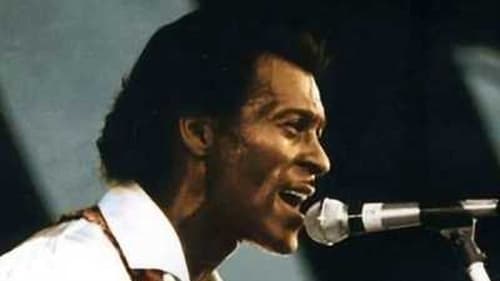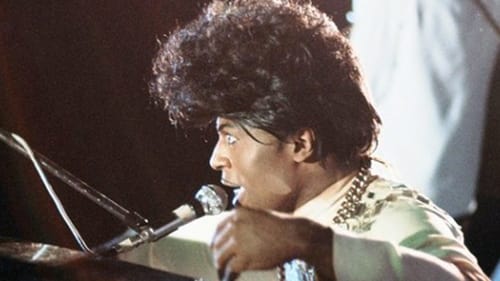
Editor
Segregated, highly surveilled, heavily filmed and intensely guarded: H2 uncovers the ways in which a single neighborhood in Hebron fuels the entire Israeli-Palestinian conflict. 54 years of military occupation, told through the story of a one-kilometer long street.

Editor
The Jewish National Fund's Blue Boxes were a global fundraiser to purchase land in Israel. Weaving a co-founder's diary entries with his descendants' memories, Blue Box investigates the myths that constructed a national icon.

Story Consultant
Lea Tsemel, a Jewish-Israeli lawyer, defends Palestinians: from feminists to fundamentalists, from nonviolent demonstrators to armed militants. As far as most Israelis are concerned, she defends the indefensible. As far as Palestinians are concerned, she’s more than an attorney, she’s an ally. «Advocate» follows Tsemel in real time, including the trial of a 13-year-old boy — her youngest client to date.

Supervising Editor
James, giving himself 12 months before he has "a license to kill himself," sets off to the Amazon rainforest with hopes of finding a shaman who can save his life.

Editor
It took the Israeli secret service four years to get their hands on right-wing terrorist organisation, the Jewish Underground. After carrying out several attacks on Muslims in the early 1980s, the group plotted to blow up the Dome of the Rock. Director Shai Gal reconstructs the events in the form of a detective story with dramatisations and interviews with key figures, including the perpetrators, who claim they have nothing to hide. With a chilling contemporary relevance, director Gal reveals the ties between members of the Jewish Underground and the Israeli political sphere are stronger than ever.

Director
20 years after his assassination, Yitzhak Rabin himself tells his dramatic life story.

Editor
"Write Down, I am an Arab" tells the story of Mahmoud Darwish, the Palestinian national poet and one of the most influential writers of the Arab world. His writing shaped Palestinian identity and helped galvanize generations of Palestinians to their cause. Born in the Galilee, Darwish's family fled during the 1948 Arab-Israeli War and returned a few years later to a ruined homeland. These early experiences would provide the foundation for a writing career that would come to define an entire nation.

Director
An Israeli woman searches for the Palestinian man who shot her son.

Editorial Services
Seven years after completing an Israeli Defense Course for female combat soldiers, director Hen Lasker returns to take a deeper look at the place where she first fell in love with a woman. Over the course of 66 days and nights, Lasker shoots a fly-on-the-wall documentary that allows unprecedented intimacy into the lives of the trainees and commanders of the Israeli army. The dichotomy of the innocence of these baby-faced trainees with the heavy burden of military service is a central theme of the film, illustrated in a scene where they discuss losing their virginity while waiting their turn to fire a machine gun. But it is the director’s relationship with Smadar, a breathtaking commander struggling to mask her gentle soul with a strict military persona, which makes the film truly enchanting. The intersection of love, duty, and personal growth thrive through to the film’s surprisingly moving finish.

Editor
In the male dominated society of Iran, Farahnaz Shiri, the first female bus driver in Tehran, has made her own little society in her bus. In Iran there are different sections for men and women on public buses. Women should enter buses from the back door, which is separated from men’s entrance, and should sit or stay in a limited zone at the end of the buses which is separated from men’s zone. But in Mrs. Shiri’s bus everything is vice-versa. She is the governor and the only law maker of her own little society. In her bus, men must enter from the backdoor entrance and must sit or stay in the limited zone at the end of the bus. Mrs. Shiri is struggling to prove herself in this society and resisting a series of injustices that she faces as a woman in the Iranian society.

Editor
The director follows a Sunni Arab doctor as he prepares to run for the early 2005 elections in Iraq.

Director
Directed by Erez Laufer, Mike Brant -- Laisse moi t'aimer is a documentary based on the real-life death of Mike Brant, who reluctantly became a foreign singing sensation during the 1960s and '70s. Born in a displaced person's camp in Cyprus, the then-named Moshe Brand grew up in a working-class environment, occasionally making time to entertain at weddings, bar mitzvahs, and, eventually, nightclubs both at home and abroad. When Sylvie and Carlos Varton saw one of his performances, they whisked him off to Paris and saw to it that his career took off. Though he was an almost instant success, he is believed to have committed suicide at the age of 28. This film features rare interviews with family, friends, and colleagues, as well as footage from home movies, television appearances, and radio recordings.

Camera Operator
A film featuring the veteran soul music artists and music of Stax Records.

Editor
Friends since high school, 20-somethings Kaleil Isaza Tuzman and Tom Herman have an idea: a Web site for people to conduct business with municipal governments. This documentary tracks the rise and fall of govWorks.com from May of 1999 to December of 2000, and the trials the business brings to the relationship of these best friends. Kaleil raises the money, Tom's the technical chief. A third partner wants a buy out; girlfriends come and go; Tom's daughter needs attention. And always the need for cash and for improving the site. Venture capital comes in by the millions. Kaleil is on C-SPAN, CNN, and magazine covers. Will the business or the friendship crash first?

Director
Nine o'clock on Monday morning, August 18, 1969: while the work force was starting the day, Jimi Hendrix was taking the stage at Woodstock. While hundreds of thousands had already left, 25,000 people remained to see this incredible performance. Hendrix, along with drummer Mitch Mitchell and bassist Billy Cox, offered masterly renditions of the songs of the recently disbanded Experience ("Hey Joe," "Foxey Lady"), and gave a preview of the blues-based Band of Gypsys ("Izabella," "Hear My Train A Comin'"), as well as Jimi's era-defining rendition of "The Star Spangled Banner." Though the weekend had witnessed some landmark performances by other great artists, this performance from Hendrix is regarded by many as the defining moment in a festival ripe with defining moments.

Director
A fringe theater group that brings the stories of gay people in Israel to the stage takes on the Edinburgh Theater Festival in Scotland.

Director
Woodstock Diary was originally broadcasted on U.S. TV in August 1994 - in honor of the 25th anniversary of the event. Later it was released on DVD with remastered 5.1 sound. It includes performances not shown in the Woodstock movie but not exclusively. Between the songs there are recent interviews with the producers / organizers of Woodstock Joel Rosenman, John Roberts, Michael Lang, the stage announcer Wavy Gravy and Lisa Law (a member of the Hog Farm who helped out at the festival).

Editor
A pioneer in the world of rock-'n'-roll guitar, Chuck Berry has created a legacy that spans decades. Berry performs some of his greatest hits and all-time favorites in this concert video that was filmed on September 13, 1969 at 'Toronto Rock'n'Roll Revival.' The Concert includes the songs "Rock and Roll Music," "Long Live Rock and Roll," "Johnny B. Goode," "Promised Land," "Carol," "Hoochie Koochie Man," "Maybellene," "Too Much Monkey Business," "Reelin' and Rockin'," "Sweet Little Sixteen" and "In the Wee, Wee Hours."

Editor
Keep On Rockin', aka Little Richard: Keep On Rockin' (USA video title) is a film of a 1969 Little Richard concert at the Sweet Toronto Peace Festival, originally released in 1970. Richard performs a number of his greatest hits, including "Good Golly Miss Molly," "Long Tall Sally," and "Tutti Frutti." The film is in color.















